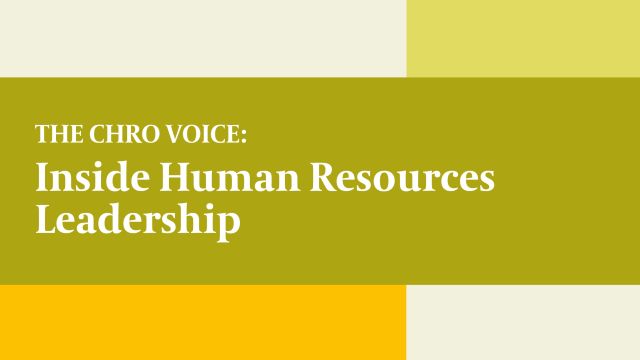My team in HR maintains a clear roadmap in terms of how our work ties to the growth strategy and business results. It's not an HR strategy per se; rather, it's a business strategy playing out across all divisions and functions, and it shows up through our Culture DNA, which is made up of our purpose, values and leadership principles.
 Sally MasseyCHRO of Colgate-Palmolive
Sally MasseyCHRO of Colgate-Palmolive
As an organization whose purpose is to be “a caring, innovative growth company that is reimagining a healthier future for all people, their pets, and our planet,” it's no surprise that Colgate-Palmolive places a strong emphasis on People and Culture as key pillars of its long-term business strategy and growth.
We recently sat down with Sally Massey, CP’s Chief Human Resources Officer, to explore how she and her team have aligned HR efforts with broader business goals and helped shape its culture evolution. In the conversation, Sally also discusses the evolving role of the CHRO and key skills for future HR leaders to develop.
A recent LinkedIn study highlighted that the CHRO is the third fastest growing role in the C-Suite. What are your views on how the role is evolving?
As a CHRO, you have to look at what's happening externally to understand how the role has changed over time – and what to focus on for the future. Ten years ago, People and Culture didn’t play such a key role in business strategy. But today, we understand People and Culture are key enablers of business growth, because we understand how we inspire and motivate our people and shape organizational culture can help us achieve our goals.
When we started to build CP’s 2030 strategic plan, which we are launching this year, we considered the role of People and Culture in that plan. And as CP’s CHRO, I believe it is my role to lead. We considered external trends and noticed a few insights: there’s broad decline in employer trust across industries; the largest workforce is Gen Z, who bring a whole new set of expectations around their careers and expectations of their employer; there are labor shortages in parts of the world; and the accelerating pace of business demands an evolving set of skills.
These insights and others helped inform the recommendation that People and Culture should be central to our 2030 strategic plan.
Culture has always been important to our Company, and because of the demands for new and different skills in the workforce, as well as the Great Resignation, we have been much more deliberate in how we think about it, and we’ve been focused on bringing more balance to hiring external talent while supporting the development of current employees. We spend significant time ensuring everyone understands our Company's purpose and culture and their role in advancing both – all in support of business growth.
Are there areas you're now spending more time on that you expected to, due to these external demands?
As part of our Investor Relations strategy, we meet with our largest institutional shareholders to discuss our overall corporate strategy as well as matters such as governance, sustainability, people and culture. I find this important audience is interested in how we have cultivated and nurtured such a consistent culture across the 100 countries where we have employees and how we engage, motivate and develop our teams to make an impact against our strategic ambitions. I am pleased with their level of engagement – it underscores my earlier point that people and culture are key drivers of our business growth.
How are you demonstrating the business value that HR is bringing to the table?
The role HR plays is central to Colgate-Palmolive’s 2030 strategic plan, and we were also part of the Company’s 2025 strategy, showcasing how the Company understands our value to business growth over time.
My team in HR maintains a clear roadmap in terms of how our work ties to the growth strategy and business results. It's not an HR strategy per se; rather, it's a business strategy playing out across all divisions and functions, and it shows up through our Culture DNA, which is made up of our purpose, values and leadership principles. We use storytelling across corporate communications – like social media, earned media coverage and our Company website – to help our audiences better understand the organization and our culture through storytelling.
Continuous learning is also important for our people and we're upskilling the enterprise to ensure they have the resources they need to continue growing at the Company. First, we’ve got what I believe is a really strong labor strategy and focus on upskilling our frontline workers – the people who make the essential health & hygiene products CP sells in more than 200 countries and territories. Next, the Company also has functional succession planning to ensure depth across our talent pipeline. And as I mentioned, we’re hiring from the outside to include new skills and perspectives while broadly upskilling the entire organization on critical capabilities.
The impact of these initiatives is reflected in our engagement surveys – how employees are experiencing the organization every day – as well as our annual results. We've made sure our incentives are tied to our strategy to create a clear link. And I’m proud to report that as a result of these and many other efforts, we’ve increased employee engagement over time – putting us in the top quartile among our peer set, according to our survey vendor.
I’m proud to report that as a result of these and many other efforts, we’ve increased employee engagement over time – putting us in the top quartile among our peer set, according to our survey vendor.
Sally MasseyCHRO of Colgate-Palmolive
What prompted the more intentional integration of People and Culture into the business strategy?
I believe that purpose-driven companies can experience greater growth. And at the heart of your purpose are the people who put it into action and the culture that supports these efforts. And while we have an over 200-year legacy, Colgate-Palmolive had actually never had a purpose statement written down until 2019. But we recognized it was important to take the time to articulate and develop a purpose statement that could galvanize our organization: "We are Colgate-Palmolive, a caring, innovative growth company that is reimagining a healthier future for all people, their pets, and our planet." I think our entire Company can see themselves in our purpose, it’s motivating for external stakeholders, and it serves as the North Star of our business strategy.
Once we launched our purpose and began communicating it across our various channels, our next priority was to reconsider our values, which we hadn’t touched in decades. They had served us well, but we asked ourselves if they were still relevant for our future and so we decided to revisit them. I am proud that we did all of this work internally by bringing people together from around the world through a global sprint team. We kept one of our existing values, We are Caring, and introduced two new ones, We are Inclusive and We are Courageous. Our three values represent who we are and who we want to become.
We also introduced new leadership principles that reflect how we want all our people to lead and work in concert with our purpose and values. These three initiatives make up our Culture DNA and serve as our organization’s North Star, guiding how we act and make decisions. Related to this is our desire to be a learning culture, and we've increased learning content consumed by our employees by four times compared to 2019, which reflects that ambition.
I believe that purpose-driven companies can experience greater growth. And at the heart of your purpose are the people who put it into action and the culture that supports these efforts.
Sally MasseyCHRO of Colgate-Palmolive
What are you learning about how to make the rollout work? How do you make it stick?
I am really proud of the communication that’s been behind all of these initiatives to get our message out to over 34,000 employees in over 100 countries and territories. We’ve leveraged consistent, people-centric storytelling through corporate communications globally, which a framework our leaders utilize locally and which bring our actions to life – personal examples from Asia to Latin America to Africa and Europe, across all categories and functions.
That said, it takes time to shape a culture: we’ve been on this journey since 2019. We focus on taking every opportunity to reinforce our Culture DNA, from CEO updates in global webcasts to HR ambassadors who advance our Live Better employee wellbeing programming on the ground, and every touchpoint in between. It's a continuous process, and we know it takes time for everyone to understand and adopt the changes – and to continually educate newcomers to the organization.
What is the next step to advancing this work further?
It's about linking our people’s everyday behavior with our purpose, values and leadership principles – and demonstrating how culture shows up in our work and business results. Consider our Courageous value. It's not just about being courageous for the sake of it; it's about showing how being courageous – thinking big and getting things done – can make a measurable impact internally and externally.
It's not just about being courageous for the sake of it; it's about showing how being courageous – thinking big and getting things done – can make a measurable impact internally and externally.
Sally MasseyCHRO of Colgate-Palmolive
What are the skills that HR leaders need to develop and evolve?
The CHRO is critical to shaping a company’s culture, which is a huge factor in employee retention and attraction – and, ultimately, the success of our people and business. To that end, we're currently focused on creating a more data-driven culture, because business ideas need to be supported by data to make business-driving decisions. We're also encouraging focused action around AI – both within HR and the wider enterprise. Colgate-Palmolive People have access to our bespoke AI Hub and are empowered to explore how AI can evolve our work and improve our productivity and efficiency – at scale. Lastly, curiosity and resilience are also crucial. HR needs to stay curious, understand external trends, and translate them into programs and policies aligned with our strategy. Resilience is also essential to be able to pivot our work based on business needs.
The CHRO is critical to shaping a company’s culture, which is a huge factor in employee retention and attraction – and, ultimately, the success of our people and business.
Sally MasseyCHRO of Colgate-Palmolive
Finally, what advice would you give yourself at the point when you were just entering this field?
My advice to myself then, and which I share now, would be to push outside of your comfort zone. I always did challenge myself – through athletics, higher education and career – but if this is a skill you can get comfortable with early on, you will be well served. Because in the CHRO role, you can’t possibly know everything and you will never know everything. Every day you are challenged with things that you are not comfortable with. The more you can be comfortable with not being comfortable, the better. Seek out those experiences that get out of our comfort zone and learn to rely on your team, on your peers, ask questions – and grow.







